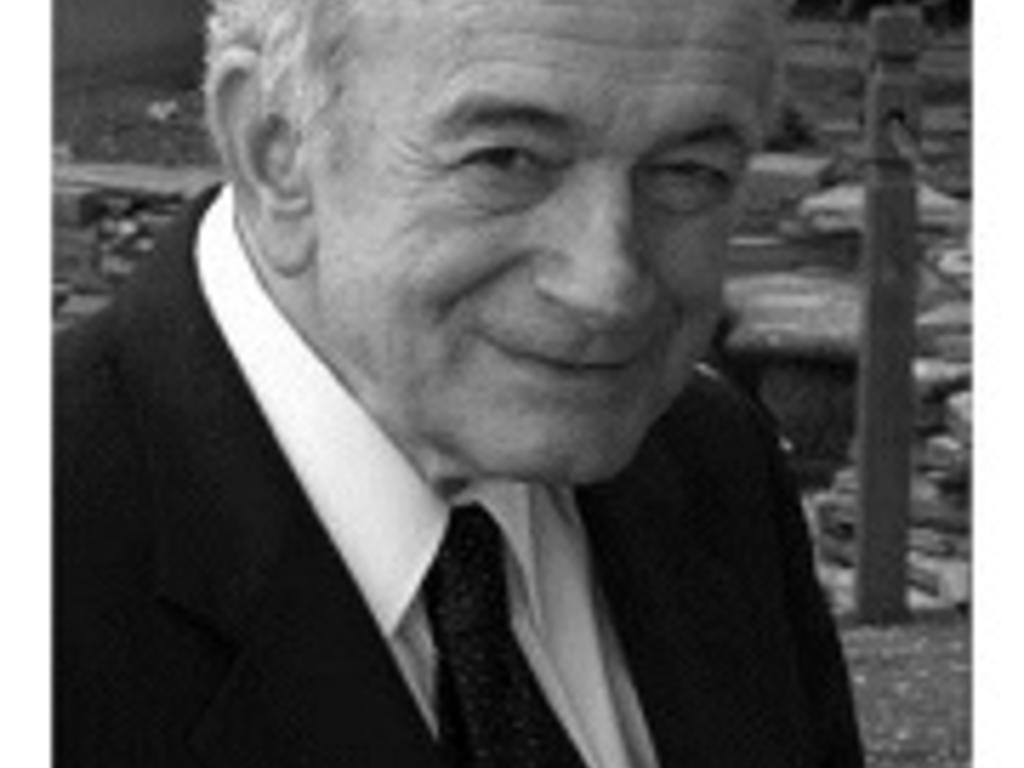Major at Rhodes: History, Phi Beta Kappa
Secondary education: M.A. and Ph.D., Harvard University
Hometown: Memphis, Tennessee
Current City: El Dorado Hills, California
Throughout the course of his extensive career in academia, Dr. Speros Vryonis, Jr. became both an eminent Byzantine scholar and a widely respected expert in both ancient Greek history and culture. This remarkable career began in 1956, the year he obtained his Ph.D. at Harvard University. He was appointed an instructor in Harvard’s Department of History, also becoming a member of its Near Eastern Center and its Dumbarton Oaks Research Center in Washington, D.C. In 1960, he joined the staff of UCLA as an assistant professor, becoming an associate professor in 1964 and a full professor in 1968. During his tenure at UCLA, Dr. Vryonis directed the University’s Gustave E. von Grenubaum Center for Near Eastern Studies – the best-equipped American research center on the Islamic people of the Eastern Mediterranean. At the same time, he held the Chair of Medieval and Modern History at the University of Athens, and was named the Alexander S. Onassis Professor of Hellenic Culture and Civilization at New York University in 1988. Today, Dr. Vryonis is retired from teaching, but remains a world-renowned historian and Byzantinologist.
What appealed to you about Rhodes, then called Southwestern At Memphis?
Though I had never been on the college grounds, I always saw them from North Parkway, set off in the distance by the great oak trees. Southwestern had an excellent reputation as to the quality of education it offered, the high qualifications of its professorial staff, and the unerring guidance of its president Dr. Charles E. Diehl. But the college itself remained somewhat mysterious – I had never thought of going on campus to examine it building by building, but the neo-Gothic style of its architecture was most appealing. I ended up at the administration building to fill out the entrance forms, and soon I was accepted.
Describe your experience at Southwestern.
Southwestern was really where I began to acquire the basic tools I needed: science, social science, language, and literature. I took many of the courses offered, giving me five years of credits. It was the beginning of an interesting adventure in learning. The education I received at the college was and remains of inestimable value to my personal and my professional life. Without that education, I could not have undertaken my many labors – mostly successful – as teacher and scholar.
Were there any professors who influenced you?
At the time, Southwestern’s enrollment did not exceed 500 students, and so I was very close to my professors, which helped me greatly. Many of the faculty had been Rhodes scholars at Oxford and had studied Ancient Greek as well. By the time I finished at Southwestern, I had read – in Professor Robert Strickler’s Greek class – Xenophon, Homer, Plato, some of Thucydides, and a great deal of the earlier Greek lyric poets, especially Xenophanes, Archilochos, and Mimnermus. Under Professor John Kent I studied ancient history, and participated in his tutorials on ancient Greek inscriptions and the history of Greek vase painting. With John H. Davis, I took courses in medieval history and English history. He was a very inspiring teacher and gave me the push to move on from ancient history to the history of Byzantium – a civilization that was still awaiting its researchers.
Where did you venture after graduation?
Upon graduation in 1950, I benefitted from the gift of a Fulbright Scholarship to the American School of Classical Studies in Athens, Greece. There, I continued to read ancient Greek texts. I also visited the Byzantine remains of Greece, focusing on the archaeological and epigraphic remains on the island of Cephallenia.
What are you doing now?
My wife is sculptress Badri Vryonis. We both work at home in El Dorado Hills, California – she in her art studio and I in my study. I have continued my research, writing and publishing on the history, culture, and politics of the Balkans, the Near East, and China. I also focus on the worlds of classical antiquity and Byzantium – at the present, I am preparing an extensive work on the clash of Byzantine and Islamic civilization.
